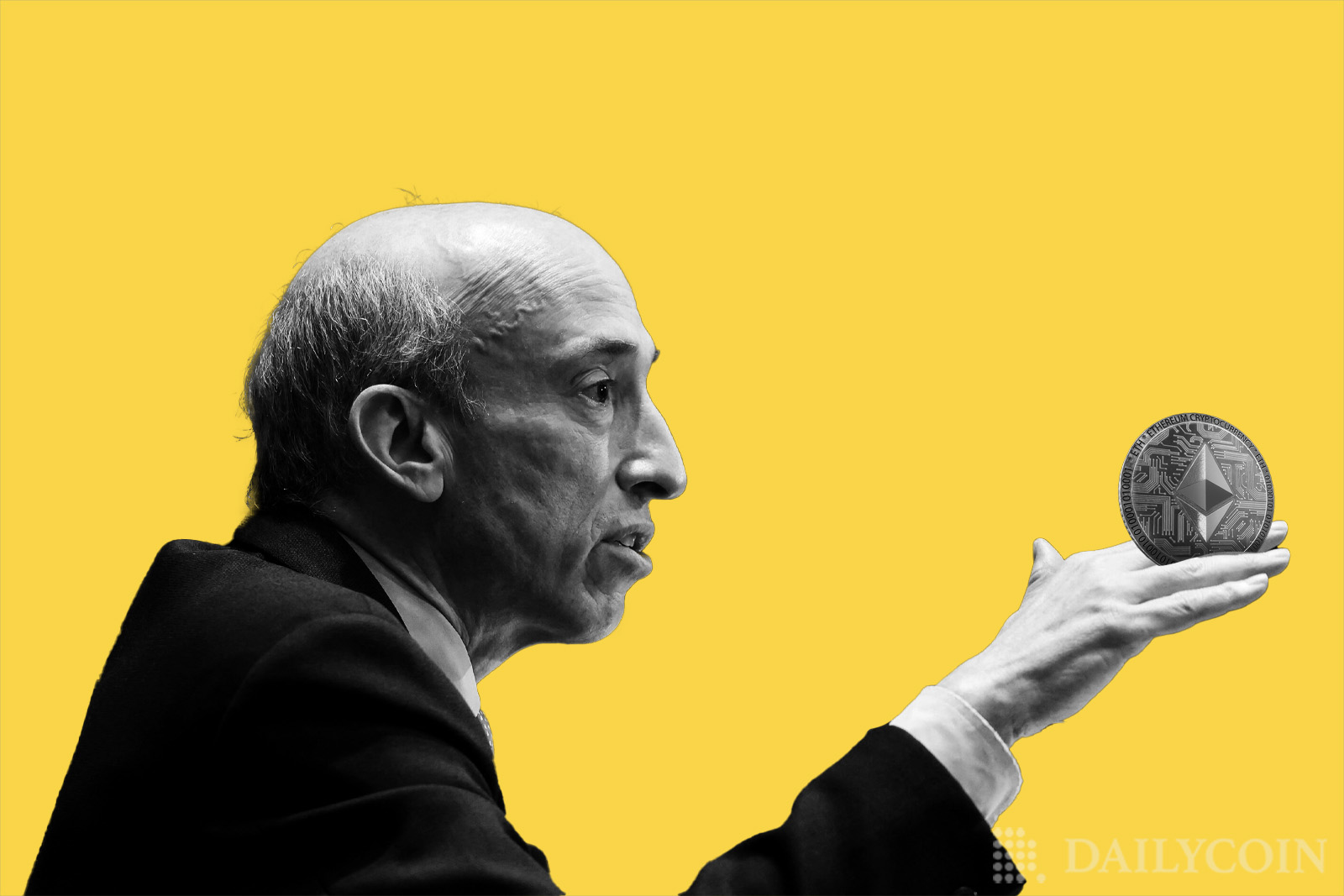
The Ethereum (ETH) blockchain’s long-awaited upgrade may already be at the root of controversy as Chairperson of the U.S. Securities and Exchange Commission Gary Gensler stated that cryptocurrency issuers and intermediaries that allow holders to “stake” their coins may meet key criteria used by courts to determine whether an asset is a security, the Wall Street Journal reported.
The test mentioned is the “Howey Test”, which refers to the U.S. Supreme Court case of the same name, used for determining whether a transaction qualifies as an “investment contract,” and therefore qualifies the asset in question as a security, making it subject to the disclosure and registration requirements as laid out under the ‘Securities Act‘ of 1933, and the ‘Securities Exchange Act‘ of 1934.
Without specifically referring to any cryptocurrency, Gensler said: “From the coin’s perspective, that’s another indicia, that under the Howey test, the investing public is anticipating profits based on the efforts of others.”
Sponsored
Following its upgrade to the Proof of Stake model, Ethereum, if classified within a category of assets that includes stocks and bonds, would be required to file extensive disclosures with the SEC. Ethereum had hitherto operated on an alternative model, known as Proof of Work, before completing its move to the Proof of Stake model this week.
The second largest cryptocurrency would face strict liabilities if it were to sell any assets that are deemed to be securities by the SEC or the courts. However, Ethereum is not alone in facing the possibility, as staking is also employed by Solana and Cardano, which would be subject to the same consequence.
Gensler underlined that “if an intermediary such as a crypto exchange” offers staking services to its customers, it “looks very similar—with some changes of labelling—to lending.”
Gensler Described The Crypto Market as a Wild West
The SEC recently fined BlockFi $100 million for failing to register with the agency, insisting that firms offering crypto-lending products must be registered with the regulatory body.
Sponsored
While exchanges such as Coinbase and FTX are required to register with the Commodity Futures Trading Commission (CFTC), they are also obliged to disclose some of the information about the assets they list, such as operating structures and conflicts of interest. However, the WSJ observed that the consumer-protection advocates worry that the CFTC lacks the resources and experience to look out for small investors in a market that Gensler has previously gone on record to describe as a “Wild West”.
Meanwhile, CFTC Chairman Rostin Behnam stated that “to fund its oversight of the digital commodity market, the CFTC would need $112 million over the first three years for rulemaking, hiring, training and outreach purposes.” He added that the amount could be generated by crypto companies in the form of a user fee.
On the Flipside
- The SEC and its Chairperson, Gary Gensler, have been criticized for their approach toward crypto companies and crypto assets.
- Recently, it has been pointed out that, since its inception in 2017, the SEC’s Crypto Assets and Cyber Unit has lodged some 200 lawsuits with at least 80 fraud investigations among them.
Why You Should Care
Gensler recently compared the crypto market to the capital market, opining that they should not be treated differently.
Read about previous comments by Gensler:
SEC Chief Gary Gensler Labels Bitcoin a Commodity, but Other Cryptos Securities
Find out more about the SEC’s approach to crypto:
SEC Chair Gary Gensler Says The Agency Needs More Authority Over Crypto
